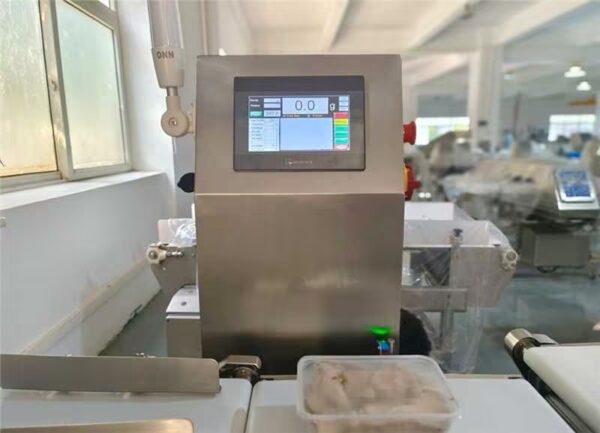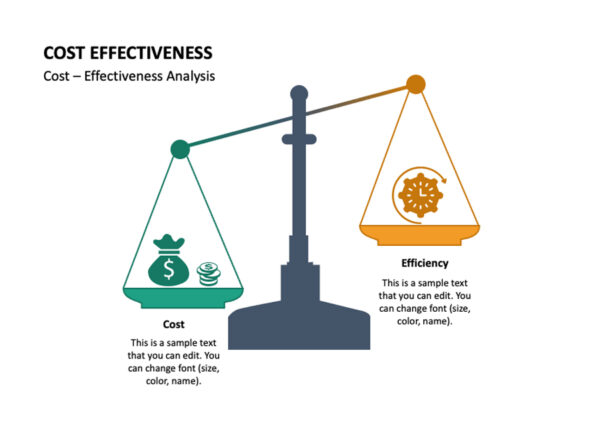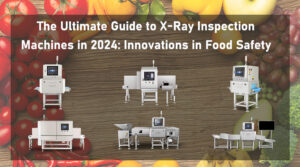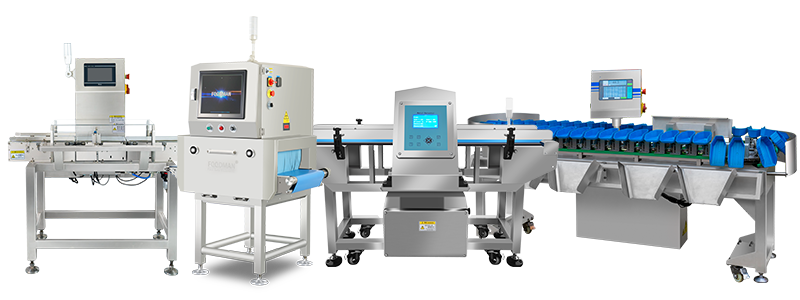Introduction
Checkweighers are essential in modern production, ensuring each product meets specified weight requirements. The device helps automate the weighing process, enhancing accuracy, efficiency, and compliance, making them indispensable in various industries. These machines provide real-time data tracking and reduce labor costs while ensuring consistent product quality and adherence to regulations.
Whether handling lightweight items or heavy consumer goods, checkweighers offer flexibility and scalability, supporting business growth. This article discusses six critical reasons your business will benefit from integrating checkweighers into your production line.
Reason 1: Enhanced Accuracy and Quality Control
Dynamic Checkweighers help maintain accuracy and quality control in production processes, ensuring products consistently meet required standards and specifications. Food manufacturers and other businesses need product consistency to help maintain their brand reputation and customer satisfaction.
Here’s how a checkweigher machine can help ensure enhanced accuracy and quality control during product manufacturing.
Maintaining Product Consistency
One of the most important reasons to consider using a checkweigher system is to ensure that every product meets its weight specifications. The device provides precise weight measurements for each item passing through the production line. This precision helps detect and reject products that deviate from the specified weight range, which proves vital in ensuring product consistency and uniformity. By maintaining strict weight control, companies can improve their brand reputation and trust and uphold high standards of quality and reliability while gaining a competitive edge in the market.
Reducing Product Giveaway
Since checkweighers help ensure weight monitoring, excess weight in packaging is another significant benefit of using checkweighers. Checkweighers help address and prevent this issue by ensuring that each package contains the intended product.
Product giveaways, or the unintended overfilling of packages, result in higher production costs and reduced profitability. Therefore, by reducing instances of overfilling, businesses can achieve substantial cost savings on raw materials and packaging. Consequently, companies can ensure more efficient resource utilization while saving costs and providing quality to their customers.

Reason 2: Compliance with Regulations
Checkweighers are an important technology in ensuring businesses comply with various manufacturing standards and regulations. The machine’s ability to ensure weighing accuracy, maintain quality accuracy, and maintain precision standards makes it beneficial in complying with industry regulations, avoiding potential legal implications.
Meeting Legal Requirements
Checkweighers ensure that all products comply with regulatory requirements, particularly those relating to product weights. This feature is critical for businesses and industries such as pharmaceuticals, food, and beverages. Industry regulations often mandate that product weights not fall below certain specifications to avoid underfilling, which could deceive or disappoint customers. Therefore, by maintaining accurate measurements of each product on the production line, checkweighers consistently verify compliance with these regulations. This continuous compliance helps businesses maintain industry standards, build consumer trust, and maintain the integrity of their products in the market.
Avoiding Penalties
Since the checkweigher machines help ensure companies meet legal requirements, they help these companies avoid hefty fines and penalties related to non-compliance with weight regulations. Regulatory authorities often impose significant penalties on companies that consistently fail to meet required standards, including selling underweight products. Therefore, integrating checkweighers into your production lines is a proactive approach to avoiding these penalties. Moreover, safeguarding your company against potential fines prevents the need for expensive recalls in product batches that fail to comply with said standards while also maintaining your public image and reputation.
Reason 3: Increased Efficiency and Productivity
Integrating checkweighers into your production can significantly improve manufacturing efficiency and productivity. The device enables uninterrupted workflow and faster operations through automation and effective weight monitoring, boosting overall productivity.

Streamlined Operations
Integrating a checkweigher conveyor into your production lines can help speed up the process by automating weight verification. The device reduces the need for manual checks, reducing human interference and the potential for error, making the weight monitoring process more time-efficient. The Checkweigher machine ensures precise and quick weighing of the products without compromising accuracy.
Automated Processes
The weight-monitoring of checkweigher machines is automated, ensuring product quality at all times. Modern checkweighers are sophisticated and can be programmed to perform more advanced operations. For example, they can be used for certain data collection and analysis, enabling real-time monitoring of each product. Also, they allow integration with other automated processes within the production lines. Therefore, manufacturers can integrate the device with other automated machines, such as sorting, labeling, and packaging.
Reason 4: Cost Efficiency
While the device itself is expensive and may require an initial investment, the services it will offer your business will ultimately prove cost-effective.

Lowering Labor Costs
The ability of checkweigher systems to monitor and automate the weight verification process of products results in need for less manual labor, driving down labor costs. Since the device is automated, it helps speed up the entire process and may even allow your employees to engage in other aspects of production, enhancing the process’s efficiency.
Lowering Product Waste
Checkweighers systems ensure that each product contains just the right amount of material, adhering closely to specified weight requirements. The device ensures accurate measurement and control of product fill levels. Therefore, food manufacturers can avoid the costs associated with excess material usage or the customer dissatisfaction that results from underfilled products. This precise control is especially crucial in industries that use expensive raw materials, as even slight deviations from required weights may result in significant financial losses over time.
Reason 5: Enhanced Data Management
Checkweigher machines enhance data management capabilities within production environments, providing valuable insights through real-time data tracking. The data and information obtained from the device allow for more informed decision-making processes, ultimately driving operational excellence.

Data Collection
Checkweigher inspection systems are integral to modern production lines because they can collect real-time data on product weights. This ability allows for continuous monitoring of production outputs, ensuring compliance with weight specifications and identifying deviations in real-time. The data collected by checkweighers can be immediately analyzed to detect patterns or trends indicating operational issues, such as discrepancies in product filling or packaging processes. In addition, this real-time data tracking enables proactive maintenance and adjustments, reducing downtime and improving overall operational efficiency.
Improved Decision Making
The data obtained by checkweighers helps monitor and control production processes, providing food manufacturers with detailed information to make more informed decisions. With access to these detailed, accurate, and real-time data, managers and operators can better understand the intricacies of their production lines. This information allows manufacturers to better operationalize, as they can pinpoint areas where resource allocations can be improved and streamlined to ensure improved quality and manufacturing efficiency.
Reason 6: Flexibility and Scalability
Besides all the above reasons, checkweighers also prove important, offering flexibility and scalability in production processes and supporting efficient business growth.
Adapting to Different Products
One of the most impressive advantages of checkweighers is their ability to handle various product types and weights, making them valuable in different manufacturing settings. Whether the production line deals with lightweight items like pharmaceuticals or heavy consumer goods, effective device calibration helps ensure precise weight control for each unique product specification.
This versatility eliminates the need for multiple specialized weighing systems, streamlining operations and reducing equipment costs. In addition, checkweighers can quickly adjust settings to accommodate changes in production needs, such as switching between different product lines, without significant downtime or manual intervention, thus maintaining high operational flexibility.
Supporting Business Growth
Scalability is an important aspect of a growing business as you plan to experience increased production demands. Checkweighers can be an efficient scaling option to meet increased manufacturing volumes without compromising quality or accuracy. With advanced systems, companies can expand their production lines or introduce new products without extensive modifications to existing equipment. Moreover, checkweighers support integration with other automated systems, helping to maintain continuous throughput and reliability.
Conclusion
Implementing a checkweigher in your production line offers numerous benefits, from enhanced accuracy and compliance to increased efficiency and cost savings. By leveraging this device’s advanced features, businesses can improve product quality, streamline operations, and support scalable growth. Therefore, this device can effectively build your reputation in the market, provide a competitive edge, and enhance your productivity.





